Boos, Biden, and Bartos: University Hosts Pennsylvania GOP Senate Debate
Courtesy of Maria Andraos/Villanovan Photography
GOP Candidates Kathy Barnette, George Bochetto, Everett Stern and Jeff Bartos debated important policy issues.
February 23, 2022
On Monday, Feb. 21, the University hosted the first state-wide televised debate among Pennsylvania’s GOP candidates for the U.S. Senate at the John and Joan Mullen Center for Performing Arts.
Kathy Barnette, George Bochetto, Everett Stern and Jeff Bartos were the four candidates that took the stage to debate. Notably, three candidates also running did not participate, including Dr. Mehmet Oz, a television personality, David McCormick, a hedge fund executive, and Carla Sands, former U.S. Ambassador to Denmark.
The Republican Party primary will be held on May 17, 2022 and will decide the Republican nominee for the Senate seat. The United States Senate election will be held on Nov. 8, 2022.
The U.S. Senate election in Pennsylvania will be held on Nov. 8, 2022, as a part of the national midterm elections. Many expect the Pennsylvania election will help determine which party controls the Senate for 2023.
This debate held more importance, as primary races pinpoint the candidates’ personal stances, rather than the party’s as a whole. Independents are an essential part of elections and can often sway whether the Democrat or Republican candidate is voted into the Senate. The four candidates were able to distinguish their positions from other candidates in the debate.
The structure of the debate included two rounds of questioning. The first round included a total of 11 questions, nine of which were offered by the moderators and two that were selected by students of the University.
The second round was a lightning round. Candidates were asked to only answer with one or two words, and they somewhat followed this expectation.
After opening remarks from the Student Government President Caroline Levine and Event Organizer Chris Nicholas, the candidates were set to begin debate.
The first question of the debate, referring to improving tax and regulatory policies for graduate students, sparked the major themes of the night.
A less popular candidate, Everett Stern, immediately took advantage of his time to announce his loyalty to democracy in the United States and the need to protect it. He defended the status of the current president in office.
Other candidates also introduced themes of their positions during the first question. Bartos emphasized that not only is he a Pennsylvania native, but wife and family are as well. He mentioned the idea of “Main Street Pennsylvania,” and his efforts in the past five years to visit all 67 counties of the state.
Bartos was the first candidate to denounce the candidates that failed to be at the debate.
“They don’t live here,” Bartos said. “They couldn’t bother to show up tonight. They don’t care about you. They don’t know this state.”
Barnette then echoed Bartos’ dig at the absentee candidates, stating that they especially fail to address the residents of Pennsylvania. In an interview with Barnette after the debate, she again echoed that the deep pockets of those who did not attend made them believe this election could be bought and not earned.
Bochetto did not mention any candidates in his response but stuck to answering the question directly. He stated that college graduates will follow the jobs, and more businesses must stay in Pennsylvania in order to keep students here as well.
“If we are chasing away our business, the students will chase away with them,” Bochetto said.
The following question about inflation due to the COVID-19 pandemic and the reasons for it occurring created more tension between candidates.
Bochetto answered first stating that inflation does not hurt the wealthy population but rather the middle class and hard-working people. He followed up by saying the current printing of money in the United States is “shameful” and “eating away at the middle class.”
He then spoke about Biden’s policies and the need to re-open the natural gas industry in Pennsylvania. Throughout the debate, Bochetto continued to speak about the dependence of the U.S. on other nations for energy sources when the state of Pennsylvania has the capacity to supply that energy. He emphasized that the United States must aim to be independent and not beg other countries for resources such as oil.
Stern proceeded Bochetto’s response and called out opponent Barnette for supporting the trucker convoy, a call for protests against the lockdown policies of the pandemic. He went on to say that other nations do not want to invest in a nation with right-wing extremism going on and that it hurts monetary policies. Stern then stated again that Biden was the president and said he hoped the other candidates were on the same page.
Bochetto responded with a quick dig.
“I am not on your page,” the Philly attorney said.
Following Stern’s answer, Bartos emphasized the importance of small businesses in Pennsylvania and allowing them to keep their doors open. He mentioned a campaign he worked on with a non-profit to raise more than $3.5 million for thousands of small businesses. He echoed other opponent’s blame on Biden’s policies for crushing businesses in this pandemic.
Barnette then stuck to a very simplistic answer, stating that inflation is the result of supply and demand issues. She criticized the Federal Reserve and called out the Democratic Party.
“Democrats will cut you a check,” Barnette said. “I will address root causes and stabilize the U.S. dollar.”
As the debate continued on, many key themes rose to the surface. All the candidates addressed the natural resources in Pennsylvania and their major potential. The Republicans stated that restrictive policies under the Biden administration are weakening the state’s economy and holding back jobs from being created.
Barnette stated that Pennsylvania has a “gold mine underneath our feet,” and it is being underutilized.
Another key topic was foreign policy, especially pertaining to China and Russia. The candidates voiced the lack of strength the United States has displayed on the global stage, calling out the withdrawal from Afghanistan as an example.
Stern said strong democracy should be the goal, while Bartos and Bochetto said the U.S. simply needs to be stronger. Bartos voiced the need to have a robust economy and said it is not “rocket science.” He went on to say that peace comes from strength.
Barnette said policy should be guided by insight and analysis, and policy should follow the science.
At the conclusion of the debate, the candidates made their closing remarks. Barnette emphasized her love for her country and promised to stabilize the U.S. dollar.
Bochetto emphasized the need for the United States to be more independent and not rely on other nations. He stated that the U.S. is too concerned with globalization nowadays.
Stern, who received boos throughout the entire debate due to his focus on the Jan. 6 storming of the capital, used his closing statements to endorse protecting democracy.
Bartos made it aware that other candidates were “political tourists” and did not know Pennsylvania well enough to represent the state in the Senate. He mentioned Main Street and saving small businesses as well.
Candidates met audience members after the debate and spoke with students, supporters and press.
As students chatted, took photos with candidates and shared opinions in the lobby following the debate, it was obvious that students enjoyed the opportunity.

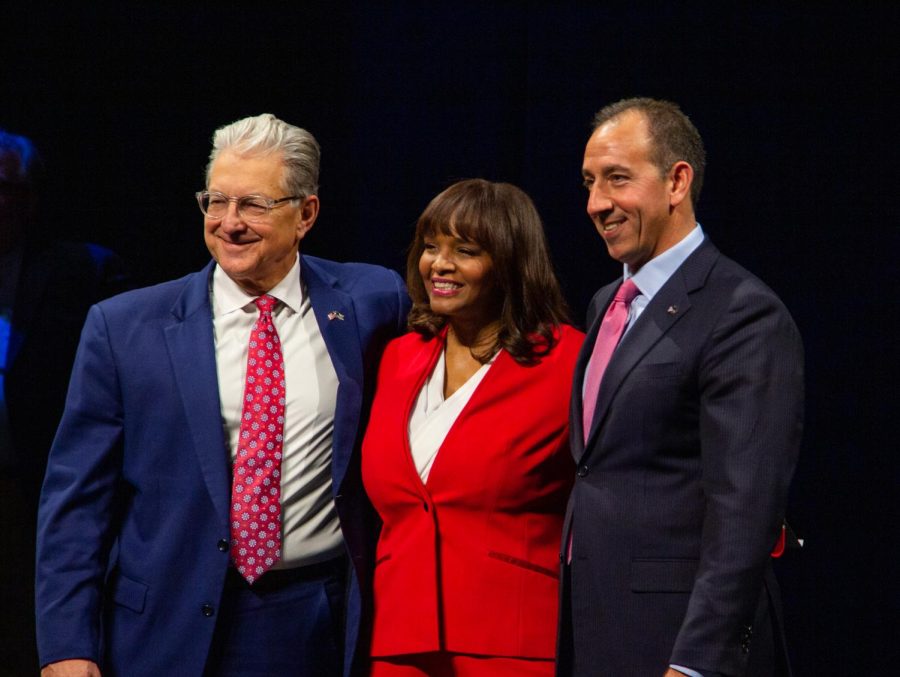
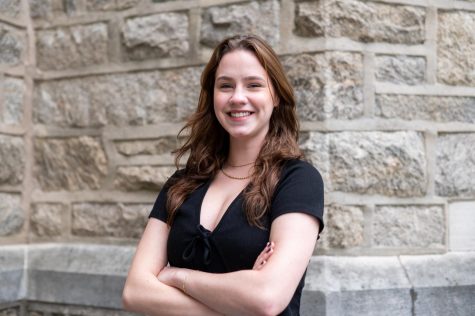



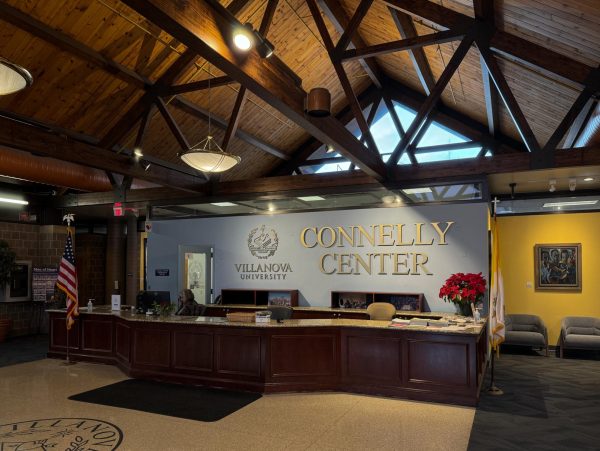
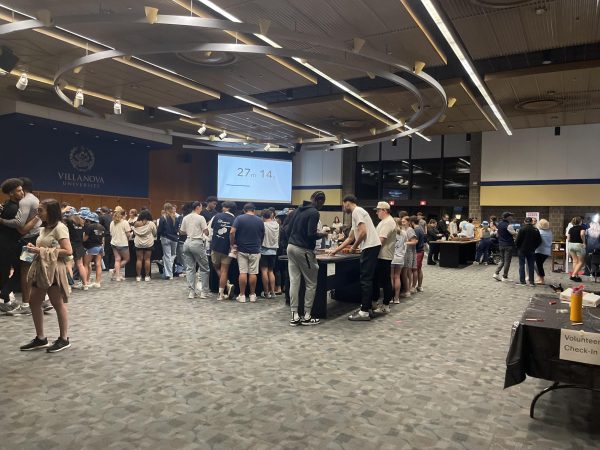
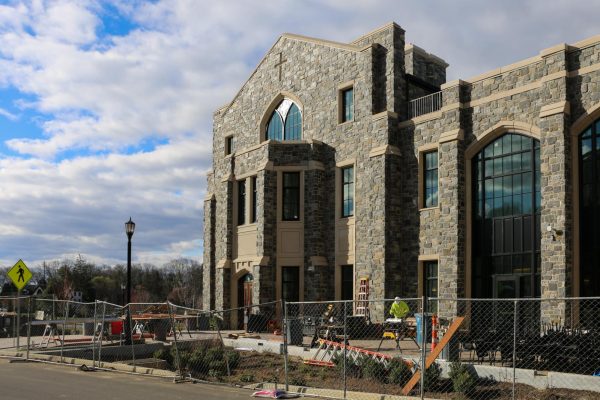
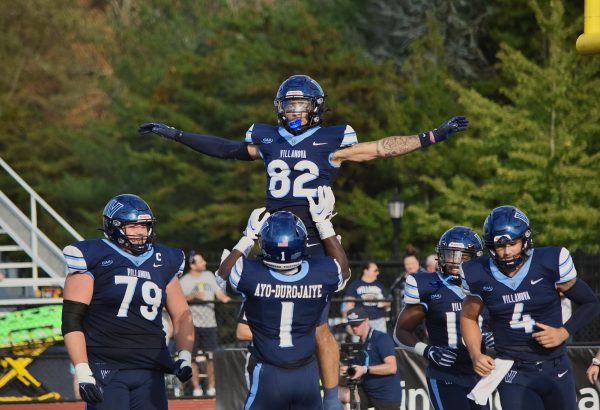
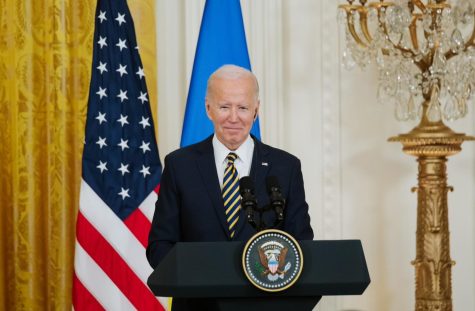
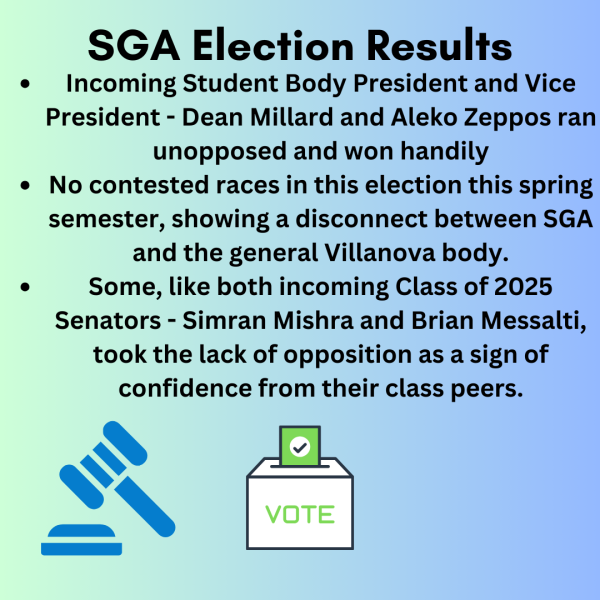
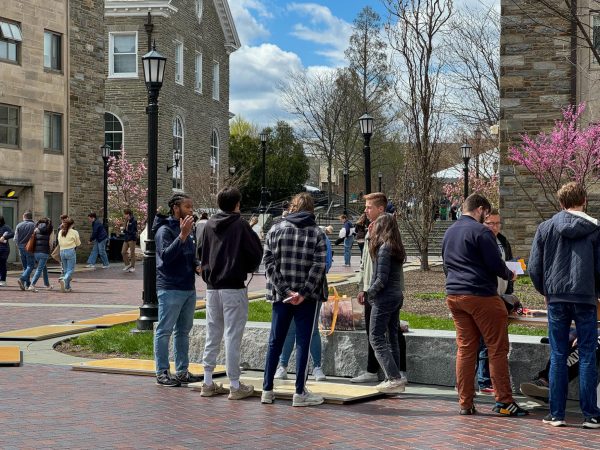
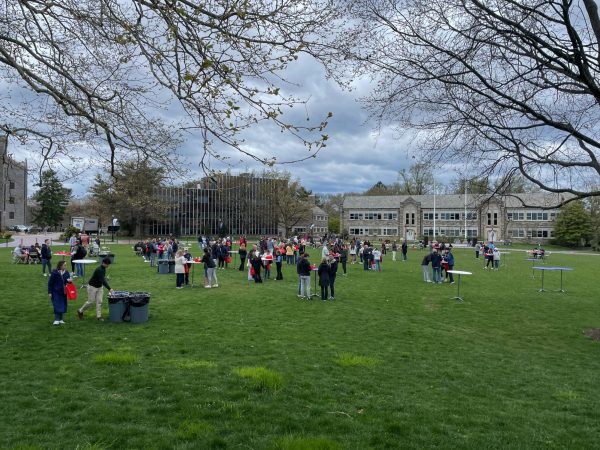
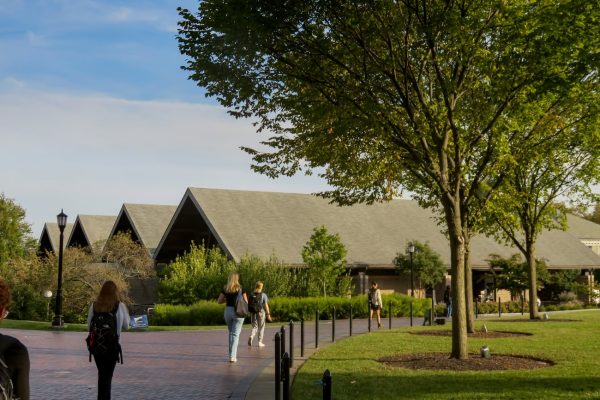

Jen S. • Mar 1, 2022 at 6:48 am
Informative article! Great coverage of the debate.